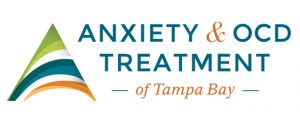Living with some uncertainty can be difficult for anyone especially related to death. However, when someone has health obsessions, the uncertainty about the state of their health is almost unbearable. Someone who struggles with obsessive-compulsive disorder typically takes a seed of truth about their health and then catastrophizes the possible outcomes.
Obsessive Compulsive Disorder (OCD)
OCD is categorized by unwanted thoughts (obsessions) followed by behaviors (compulsions ) to neutralize the anxiety felt as a result of the thought. There are various domains of OCD including contamination, aggressive intrusive thoughts, sexual intrusive thoughts, scrupulosity, ordering/arranging, magical thinking, superstitious fears, ‘just right,’ perfectionism, and more. Health-related anxiety falls under the umbrella of contamination OCD. However, not all clients with contamination OCD fear an illness or death. Common compulsions that one might do when experiencing health obsessions might be: spend an excessive amount of time researching symptoms online, visit various doctors, check their own vitals or weight, talk incessantly about their health, avoid tv or movies involving illnesses or death, refrain from going places that are not near a hospital and so much more.
Psychosomatic Symptoms
Frequently when someone has health-related obsessions, they will experience psychosomatic symptoms. This means that someone might develop real physiological symptoms that are a manifestation of their anxiety. Psychosomatic symptoms are scary for the person experiencing them because they are real, however, they are not an indication of some physical illness. In fact, psychosomatic symptoms are an indication that someone is experiencing high levels of anxiety and stress.
Examples of health-related obsessions
We’ve treated numerous clients with health-related obsessions with various levels of severity. The obsession can really be about anything pertaining to one’s body and mind. The fear of having any form of cancer is incredibly common. These clients will often check their bodies for tumors, consult with many doctors, information seek signs of cancer online, and so on. The fear of having schizophrenia is another common one. These clients might ask loved ones if they are hearing or seeing the same things as them. They will look up symptoms of schizophrenia. They might ask various mental health professions their clinical opinions. The fear of contracting HIV/AIDS has been a frequent obsession over the past 30-35 years. These clients will be mindful of what they touch, wash hands frequently, get tested often, and sometimes avoid sex altogether. The fear of contracting any sexually transmitted disease is another one we see often. Even is someone is avoiding sex altogether, they might still be afraid that they could contract something from using a public restroom, trying on clothes at a store, using a public swimming pool, avoid people they might suspect have an STD, and so on. In Florida, the fear of somehow getting a flesh-eating bacteria from water sources is another one we hear. Other common obsessions include: insomnia, heart disease, becoming pregnant, back/knee injuries, and many more.
The effects OCD has on loved ones
Health related OCD, all OCD domains really, is exhausting for the afflicted person and loved ones. Loves ones want to be supportive and so they might listen to the client’s concerns at the beginning. They might encourage the client to see various doctors in the hope that the client gets sufficient reassurance. Loved ones will accommodate the client because they perceive that as being supportive. Unfortunately, accommodation only makes the client worse and, to put it bluntly, OCD can sabotage relationships. Depending on the severity, OCD makes the client become increasingly more ego-centric. In other words, they often think of themselves in relation to their fear. It’s incredibly anxiety-producing for the client and can leave loved ones feeling a bit neglected. OCD wants to rob someone of joy. Therefore, I can’t tell you how many times we’ve heard of fun events being ruined by OCD and how OCD can dominate any relationship dynamic. Before receiving treatment, the person struggling with OCD is not fully aware of how much his or her relationships are being impacted by their OCD. When we treat anyone with OCD, we first focus on how compulsions are affecting someone’s relationships. It’s important when undergoing treatment that the client is getting the most effective and healthy support from their family and friends. Family is often encouraged to accompany the client for at least one session so that they can better understand OCD as a mental illness and discover what appropriate support looks like. We love having family and close friends involved in treatment if the client is willing.
Treatment
Treatment involves exposure response prevention (ERP). The client tells us what they fear and we create tasks that slowly expose someone to their fear at a manageable level. ‘Manageable’ is the keyword here. The more you are exposed to your fear, the weaker the fear becomes. ERP is incredibly empowering. The client always determines the speed of treatment and is in complete control of what exposures he or she completes. It seems scary at first, but with behavioral therapy such as ERP, clients see positive results quickly.
Even if you are still unsure about receiving treatment, give us a call. We are here to help even if it’s a phone call to simply explain treatment in more detail.
Check out the International OCD Foundation website for additional information: iocdf.org

Ready to Learn More?
Our mission is to offer specialized treatment that empowers individuals through behavioral change. If we can be of assistance please reach out and we will be in touch right away.

